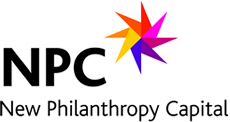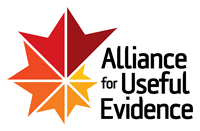How Do You Put Impact Measurement at the Heart of What You Do?
How Do You Put Impact Measurement at the Heart of What You Do?
by Harry Hoare, Associate, Social Finance, UK
Measurement is important right? You wouldn’t be reading this in a SIAA publication if you didn’t agree. We hear it from policy-makers all the time too. So why have social programmes consistently failed to do it over the last twenty years? Why do governments still make commissioning decisions on a combination of hunches, guesswork and risk aversion?
This article explores three uses of measurement as part of a Social Impact Bond (SIB), an approach that makes measurement king.
Measurement is used:
1. Before the services goes live – to provide more resources to tackle society’s problems
2. During service – to drive better performance
3. After service – to build an evidence base
A SIB (http://www.socialfinance.org.uk/work/sibs) is a collaboration between government, investors and services providers to provide a new service: the investors’ money funds the service and the government pays them back (with a return) if agreed social outcomes are improved e.g. reduction in reoffending, improved employment etc. Clearly the investors care that the service achieves what it set out to, and that these improvements are captured so that they are able to get paid.
How do you persuade investors and government that this is a good deal for both of them?
At the heart of the SIB contract is one or more outcomes metrics – the terms that dictate whether payments are made and how much. In our work we’ve found that these metrics need to balance government’s preference for greater complexity to capture cost savings to the public purse with investors’ desire for more simple metrics that capture benefits to individuals. Investors (or “social investors”) are willing to put their money to use to promote social ends in order to promote positive change in the lives of those using the service, the ex-offenders or the job seeker. It is therefore crucial to monitor how well these services are working to improve their lives based on the different activities in which they take part and the workers who support them. Under a SIB lots of data is collected to enable analysis of which parts of the service are performance and where extra effort is needed.
For example, in Peterborough we saw many short sentence offenders had low level mental health problems that often went undiagnosed or untreated. As a response (and in order to help achieve the goal of reducing reoffending), we introduced mental health support as part of the overall package offered. Good performance can help inform the allocation of resources and identify service failures as soon as they develop.
Measure what is meaningful
In doing all this, we build an evidence base. Lack of evidence is the main barrier that prevents successful interventions going to scale. In order to deliver impact at a national scale, social organisations need a robust evidence base to show their programme works.
Warren Buffett found it ‘extraordinary’ that academics studied ‘what was measurable, rather than what was meaningful.’ Clearly, it is not more measurement; it is measuring what is meaningful and acting on it. As people working to achieve impact – to reduce reoffending, promote employment, get homeless people into stable housing – we are concerned with an essentially practical (not academic) endeavour.
We want to bring the best of academic rigour to the measurement of the meaningful.
Buffet pondered the adage, ‘to a man with a hammer, everything looks like a nail.’ Does there need to be a distinction between what is measureable and what is meaningful? I believe that to go beyond measurement we need to bring these two together. By measuring what is meaningful – and acting upon it – we can make the world a better place!
Further Reading:
Cabinet Office. Centre for Social Impact Bonds Knowledge Box: http://data.gov.uk/sib_knowledge_box/.
Social Finance. (Jan 2013) Technical Guide to Developing Social Impact Bonds.
Social Finance. (Oct 2013) Investing in Social Outcomes: Development Impact Bonds.
Harry joined Social Finance in January 2011 as an Analyst. He works on Social Impact Bond development in the fields of drug treatment and criminal justice. Harry holds an MPhil in Political Theory and BA in Politics, Philosophy and Economics from Oriel College, Oxford.
This article was first published in Beyond Measurement: Reflections on SIAA annual conference 2013. This publication provides reflections on the workshops, hotspots and interactive activities that took place at SIAA annual conference on 10th December 2013, and highlights the discussions and the ideas that came out of the day. Click here to view the publication.





